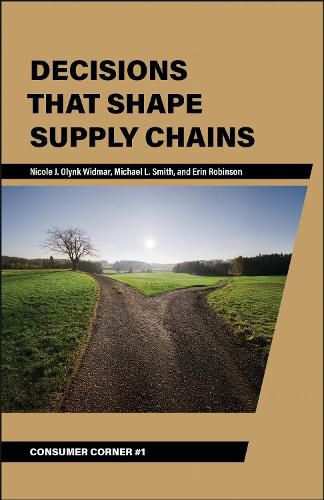Readings Newsletter
Become a Readings Member to make your shopping experience even easier.
Sign in or sign up for free!
You’re not far away from qualifying for FREE standard shipping within Australia
You’ve qualified for FREE standard shipping within Australia
The cart is loading…






What drives consumer decisions, and how do those decisions ripple through our food and agricultural systems? In Decisions That Shape Supply Chains, readers are invited to look beyond conventional models of behavior and explore the complex, sometimes counterintuitive factors influencing real-world consumer choices. Drawing on behavioral science and applied research, this volume examines how decisions made in grocery aisles, drive-through lines, and online shopping carts ultimately inform what gets planted, processed, packaged, and promoted across the food-supply chain. From attitudes toward GMO foods to parenting as a form of consumerism and emotional decision-making under stress to the environmental tradeoffs consumers weigh (or ignore), the topics covered in this book challenge assumptions and reframe the conversation about who holds influence in the marketplace. For agribusiness professionals, researchers, and policymakers, these insights offer better ways to connect with the people at the end of every supply chain: the consumers themselves.
$9.00 standard shipping within Australia
FREE standard shipping within Australia for orders over $100.00
Express & International shipping calculated at checkout
What drives consumer decisions, and how do those decisions ripple through our food and agricultural systems? In Decisions That Shape Supply Chains, readers are invited to look beyond conventional models of behavior and explore the complex, sometimes counterintuitive factors influencing real-world consumer choices. Drawing on behavioral science and applied research, this volume examines how decisions made in grocery aisles, drive-through lines, and online shopping carts ultimately inform what gets planted, processed, packaged, and promoted across the food-supply chain. From attitudes toward GMO foods to parenting as a form of consumerism and emotional decision-making under stress to the environmental tradeoffs consumers weigh (or ignore), the topics covered in this book challenge assumptions and reframe the conversation about who holds influence in the marketplace. For agribusiness professionals, researchers, and policymakers, these insights offer better ways to connect with the people at the end of every supply chain: the consumers themselves.